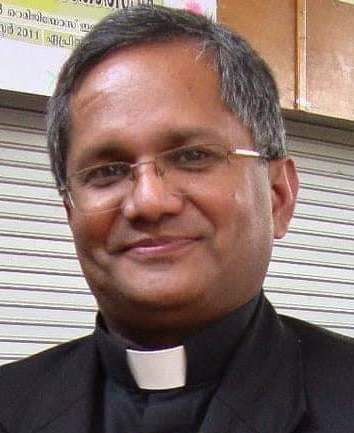Recently, when I received an invitation to donate blood, on a Holy Thursday, my joy was boundless, especially knowing the significance of the day. However, my joy was short-lived as the UK rules for donating blood denied me the opportunity this time because I had made a foreign trip within six months prior to the date of donation. But this trip to the donation camp gave me the opportunity to meet many people, young and old alike, who came voluntarily to donate blood. Those people patiently waited for their turn, and when called, they approached the donation bed with a smile on their lips and with enormous courage. The act in itself is noble as well as amazing. It is marvalous to watch how a blood donor is filled with a sense of joy when that long needle is removed and is told to sit up on bed. Although I was not eligible to go through this amazing process because of the rules, I imagined myself lying in the donation bed, periodically pressing my fist for the red liquid to flow out through my veins into the plastic bag as I had done innumerable times in the past.
One of the few things the modern science and technology has not been able to create artificially is blood. No alternative to blood has been found thus far. When one loses blood by an accident or during a medical surgery, he cannot substitute it with anything else other than pure blood. This is because blood is the agent of life. If blood is drained out from the body, life itself gets drained out. When blood is transfused into the body, life gets revived.
So when one loses blood, where can he get the replacement? The answer is blood donation. Blood and its components are essential for surgery as well as for the treatment of many cancers and immune system deficiencies. True, God has not created a substitute for blood, but he has a unique way to meet the enormous requirement: He has stored it in the veins of other humans. It only takes very little effort, but much love and generosity to go out and share this precious liquid with others in need. Donating blood does not in any way reduce our quota. Within a short span of time our body replaces what we have given away.
Sharing blood in times of need is saving life. But we need not wait for an emergency situation to give away blood. Donating it to a responsible institution periodically (normally once in 16 weeks) would ensure enough blood for everyone in times of emergencies. Any healthy person between the age of 17 and 65 can donate blood, provided he has fulfilled the conditions for safety. It is reported that only 5 per cent of those eligible volunteer to donate blood. But the need for blood is ever increasing as modern medicine and surgery advances. The number of accidents and various types of illnesses are also increasing. This explains why there is such an urgent call to everyone to be a blood donor. Winston Churchill says: “We make a living by what we get, but we make a life by what we give”.












